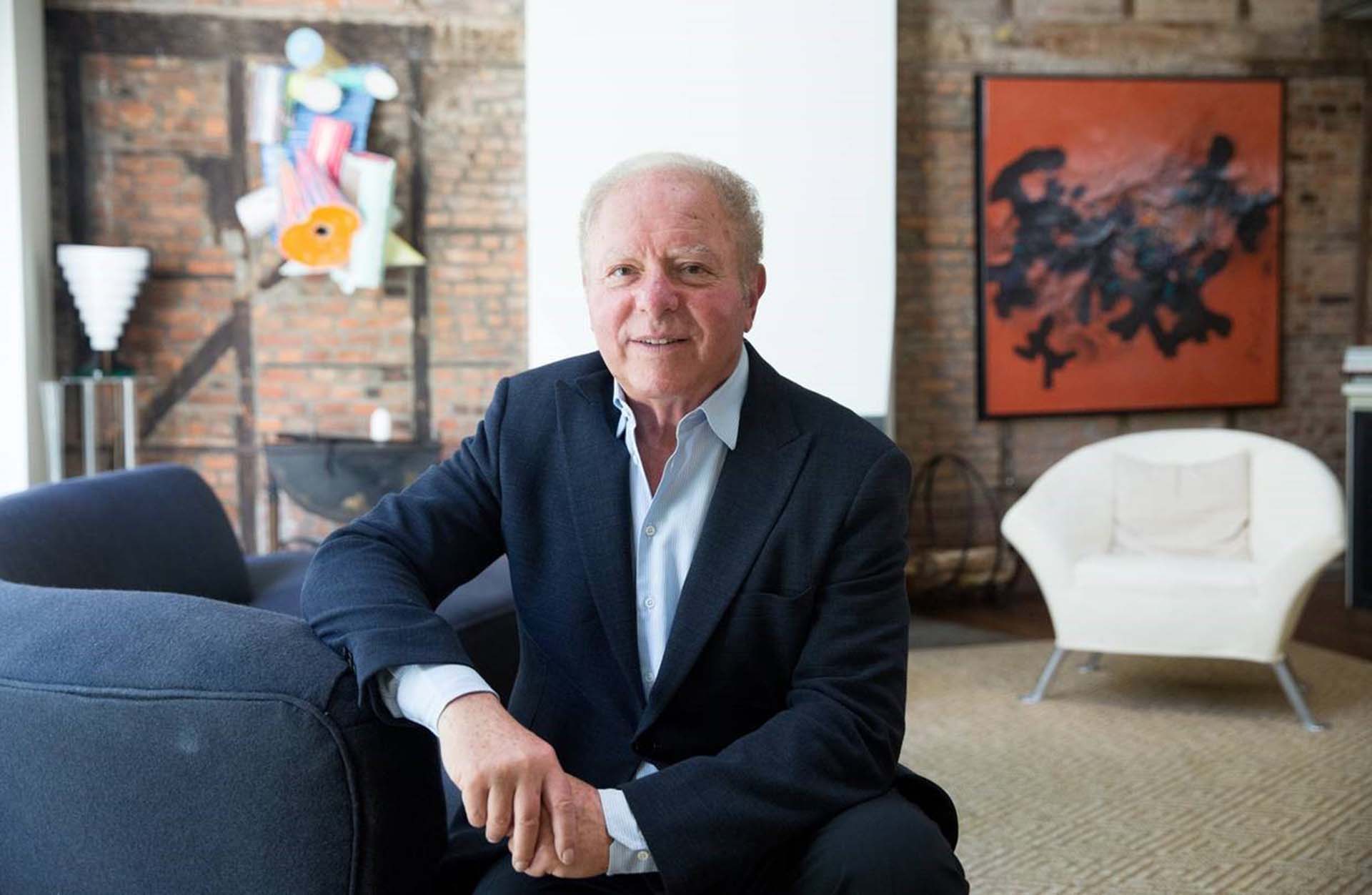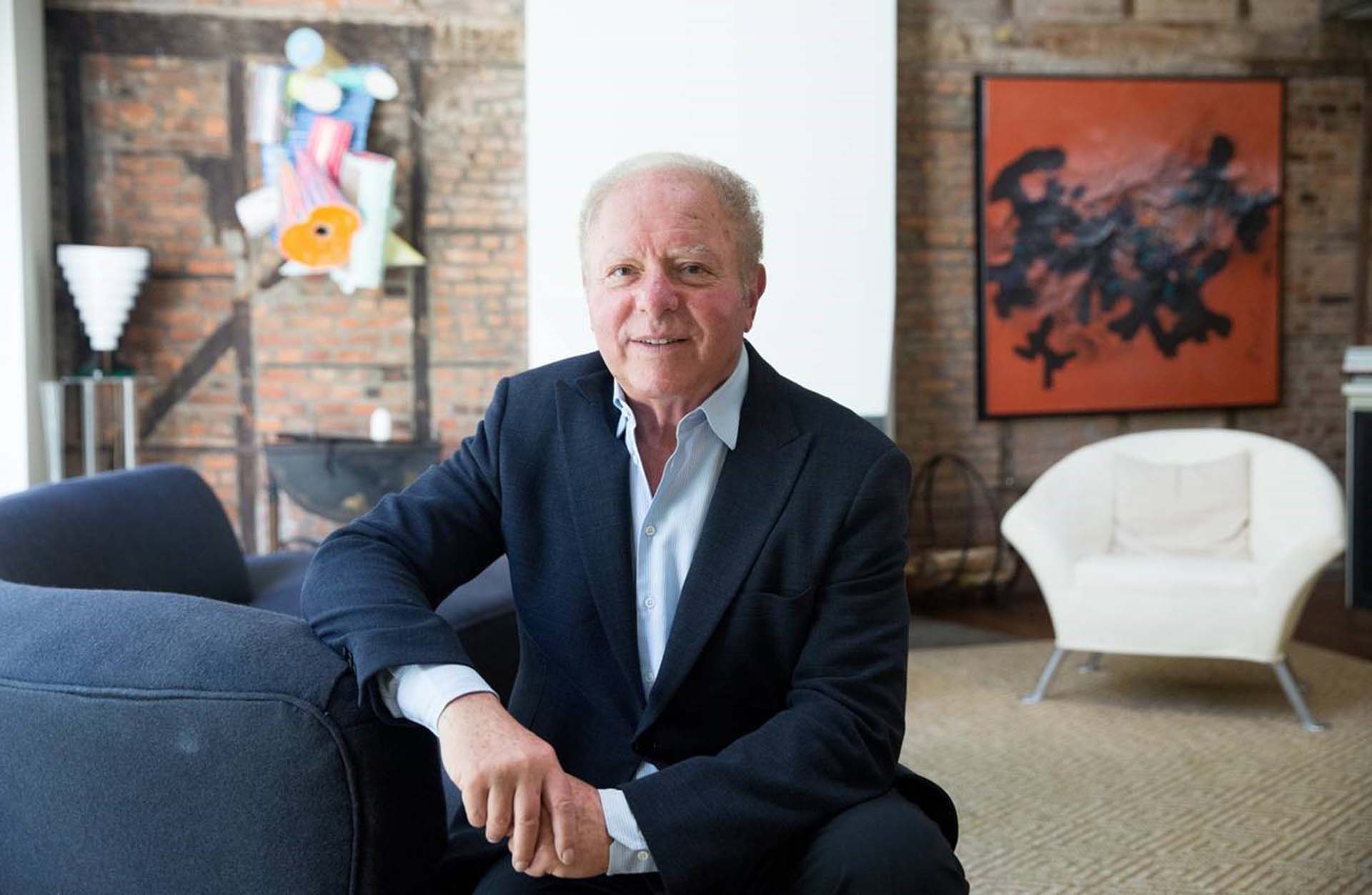Ken Lipper: Taking On ‘City Hall’


“City Hall” — a 1996 gritty political drama starring Al Pacino, John Cusack, Danny Aiello, and Bridget Fonda — will be part of the Friday Night Flicks series at Bay Street Theater on Friday, April 12, with a talkback by the film’s producer and co-writer, Kenneth Lipper.
The movie seems to be experiencing a sort of rebirth, maybe in the wake of the present political climate. “It was just shown at the Aero,” an art cinema house in Santa Monica, CA, on March 27, “and there was a line half a block long,” Lipper recalled. “And from the questions afterwards, it was clear to me that the current audience understands it better and is more attentive to it than previous audiences. It’s clear now from what’s going in the government in Washington, and all these institutions, that people can relate. It is almost more relevant and current today than when it came out. Young people are keeping their eye on the government right now, and that’s good. This movie is an intimate examination of government at any level.”
Lipper, an East Hampton resident, knows a thing or two about politics and movies. There’s not enough room to go into his prominent career in the financial and political sectors, but here’s just a taste: grand poohbah at Lehman Brothers, Salomon Brothers, his own Lipper & Company, plus his adjunct professorship at Columbia’s School of International and Public Affairs, and lots of other esteemed titles and places of work. He was Deputy Mayor of New York City. He’s also won an Oscar. And written books. And was the technical consultant on the film “Wall Street” (in which he also appeared), and which he then turned into a successful novel of the same name.
Roger Ebert’s description of the film when it was released was this: “‘City Hall’ begins with a street shooting not unlike those that happen so often in big cities. A detective and a gangster exchange bullets, and they’re both killed — along with a six-year-old boy unlucky to be caught in the crossfire. Questions arise: Why was the cop at a one-on-one meeting with the nephew of a top Mafia boss? Why was there no backup? Whose bullet killed the kid? For New York Mayor John Pappas (Pacino) this is all in a day’s work, and he moves smoothly into action, accompanied by his idealistic young deputy mayor, Kevin Calhoun (Cusack). He visits the cop’s widow. He visits the boy’s father. He holds a press conference (‘Be sure the Post gets the first question’). He promises an investigation. And he delivers — up to a point. The movie is about what that point is, and what lurks beyond it.”
Lipper began writing the screenplay for “City Hall” from his home in East Hampton. “I wrote it over a three-year period on weekends,” he said with a laugh. “One thing that the film focusses on is that government is a place. Just like Wall Street is a place, so is City Hall. It’s organized in a certain way. There are certain other institutions that orbit around it, that are symbiotic with it, and the people who inhabit it are shaped by it.”
It’s interesting to talk to Lipper about the three films with which he’s been involved — “Wall Street,” the ultimate film about greed, then “City Hall,” which shows how power can corrupt even the most well-meaning politician, and his Oscar-winning documentary “The Last Days,” which focused on the final moments of World War II and the experiences of five Hungarian Holocaust survivors.
It’s almost like Lipper started down a path to examine the dark side of ambition, and it just got darker.
Where did this fascination with the abuse of power begin? “I worked in Wall Street for many, many years,” he said. “And then government. And it’s more about the dilemma of power than the abuse of power. The interesting point to me is why and how, and for what reasons, an individual gets corrupted. It’s really an exploration of why somebody abuses the power and responsibility they have. When do they decide it’s okay to cross a particular line? It’s about self-discipline in an environment that demands heavy performance and results every day, and has tremendous obstacles.”
Take “City Hall,” for example. Lipper points out that it was the movie’s objective to show Pappas as “the most effective mayor in the city’s history. He’s like LaGuardia. He’s trying to make things work for the right reasons, to serve the public. In order to make a democracy run, or maybe any government run, what they have to learn is how to make this complicated organization move in their direction, and this mayor is very well-intentioned. Someone else may be power-hungry, or a kleptocrat, and just want to get the money out of it.”
How did he prepare to write this screenplay (with a couple of other guys named Paul Schrader, Bo Goldman, and Nick Pileggi)? “I read Greek tragedies,” he said. “‘Antigone,’ ‘Julius Caesar,’ that are about the dilemma of power and unforeseeable circumstances.”
“So, the whole dilemma in this movie is about black and white. The deputy mayor says, ‘There is only black and white,’ and the mayor responds, ‘We live in the gray.’ But the point is, if you are living in the gray, you are living in the black, not in the white,” added Lipper.
Touching on his Holocaust survivor documentary, Lipper agreed that this is “also about power — supreme power, power of life and death, that comes when an evil government is in control and there is no system of objectivity other than the whim of whomever wields the power at that time. So, in a peculiar way, ‘The Last Days’ carries out the implicit scenes of ‘Wall Street’ and ‘City Hall,’ it tells you what happens when there is absolute corruption of power. When there is only black.”
“City Hall,” Lipper says, incorporates the philosophy of menschkeit — the space between a handshake. “Menschkeit,” says Pacino’s character. “It’s about honor, caring. Untranslatable. That’s why it’s Yiddish.” And later: “I’m talking menschkeit, the stuff between men. You know, the there that’s there.”
And there’s more. To hear Lipper discuss it, and to see Pacino in what has been called one of his greatest roles, get tickets to the 8 PM event at Bay Street Theater in Sag Harbor on April 12. Visit www.baystreet.org for more details.
bridget@indyeastend.com



